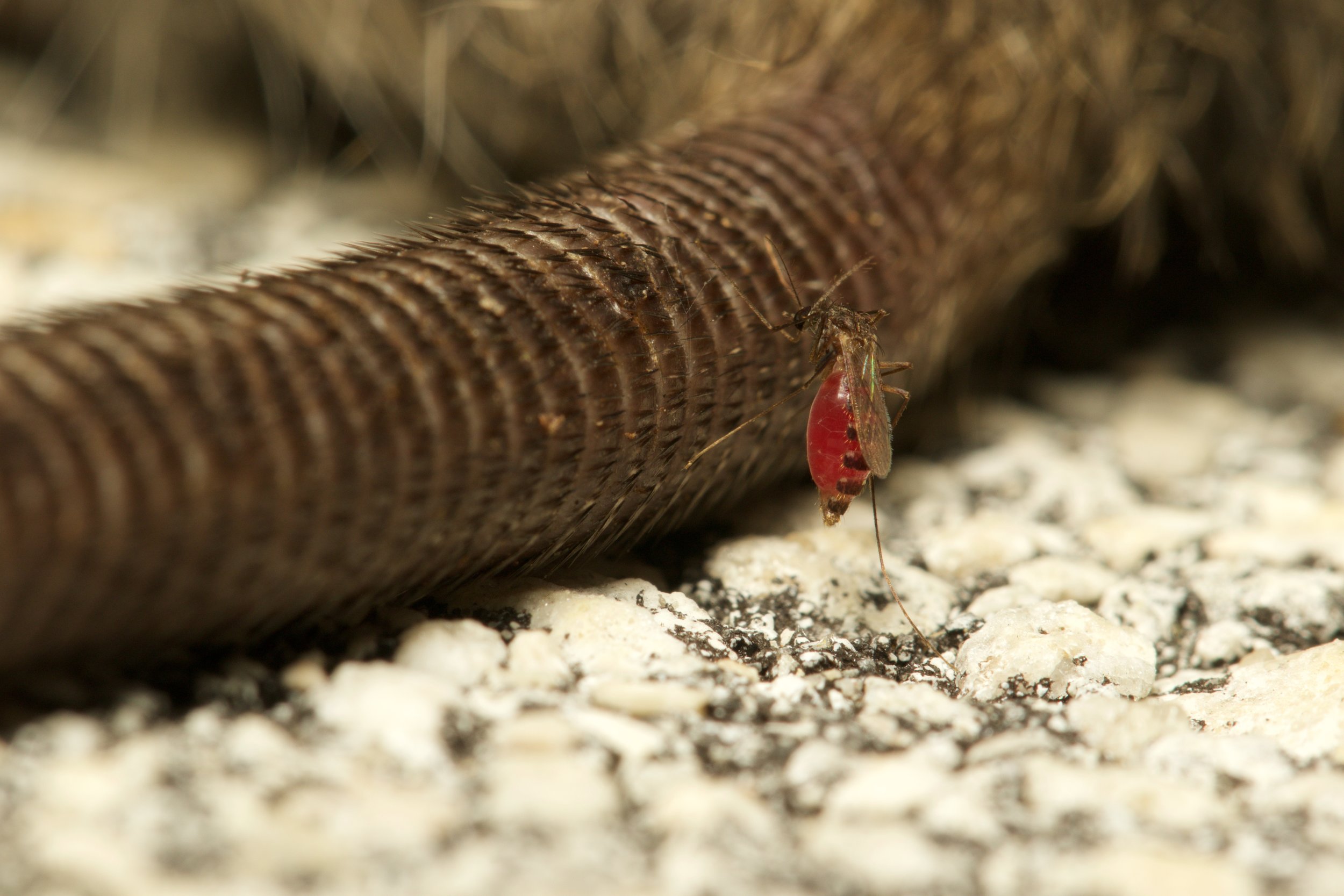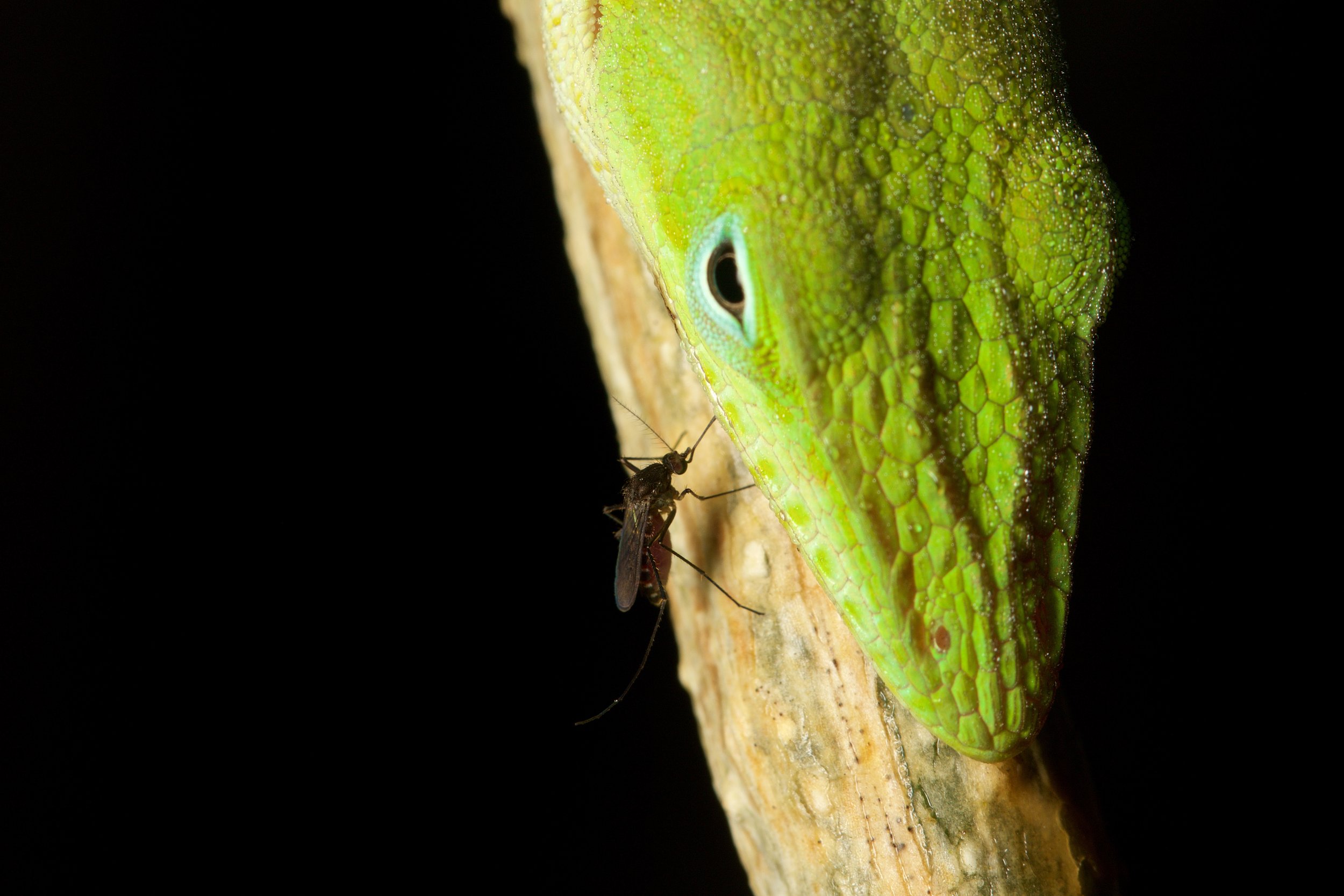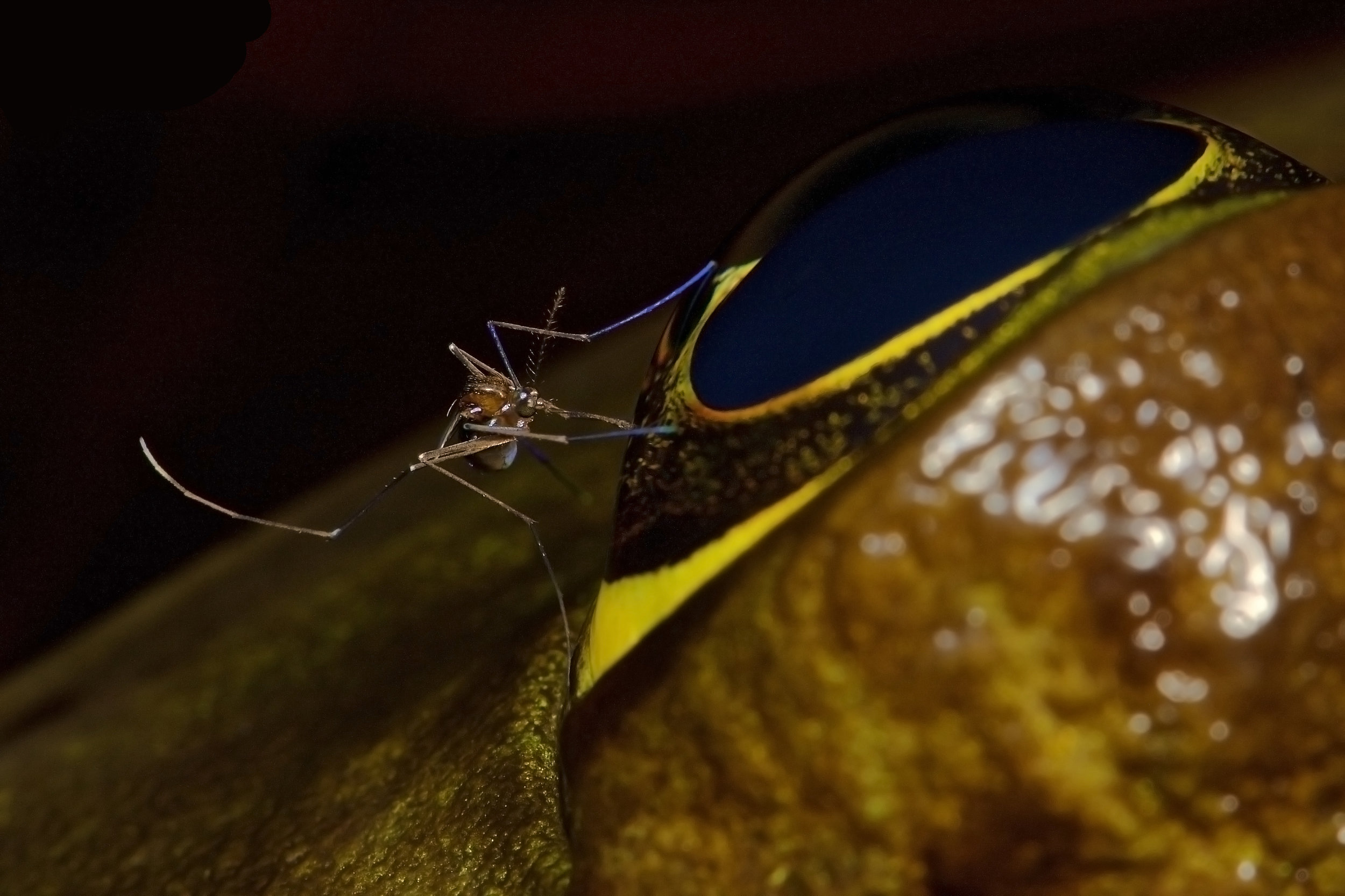Research
I am interested in biodiversity.
I study biodiversity through mosquitoes. The females of most mosquito species require a blood meal, usually taken from a vertebrate host, to produce eggs. Female mosquitoes take blood from all the major terrestrial vertebrate classes: mammals, birds, reptiles and amphibians. Mosquito species vary in their preferences for certain types of hosts. Some take their blood meals only from warm- or cold-blooded hosts, and some only from particular host classes. There are even mosquito species that feed exclusively from fish (mudskippers). Mosquito-vectored viruses have also been found in wild dolphins and captive orcas, suggesting that they, too, may be fed upon by mosquitoes. Mosquitoes are good at finding their hosts. Each species may use a combination of olfactory, thermal, visual and auditory cues to locate their hosts.
Understanding what species occur where is fundamental to ecology and biodiversity conservation. Obtaining this information through traditional surveys can be challenging in complex habitats or when species are cryptic, elusive, or shy. At the same time, mosquitoes can be sampled with relative ease through traps or active collection. Molecular analysis of DNA from mosquito blood meals can serve as an indirect sampling method that eliminates the need for direct observation.
When a mosquito takes a blood meal from a host, the host's DNA is present inside the mosquito until it is digested. Samples of blood fed mosquitoes contain DNA that reflects the local host community. Host DNA can be extracted, Jurassic Park-style, and sequenced. A short fragment of the DNA barcoding gene cytochrome c oxidase subunit I (COI) can be amplified, sequenced and compared against a reference database to determine its taxonomic identity. This information is traditionally used within epidemiology to understand the host use patterns of pathogen-vectoring mosquitoes. Because mosquitoes do not disperse large distances after feeding, and the relatively rapid rate of blood meal digestion, a byproduct of these analyses is the ability to infer the presence of a host animal at the time and place of the mosquito's collection.
I am interested in what we can learn from mosquito blood meals. Among other things, host DNA from mosquito blood meals can tell us about the ecology of mosquitoes and the pathogens they vector (e.g., which mosquitoes feed on which hosts), and what host animals occur where. Mosquito blood meal identification can be used to survey the diversity of host communities, detect the presence of invasive or endangered vertebrate species, or to understand how an emerging pathogen is likely to move through an ecosystem.





